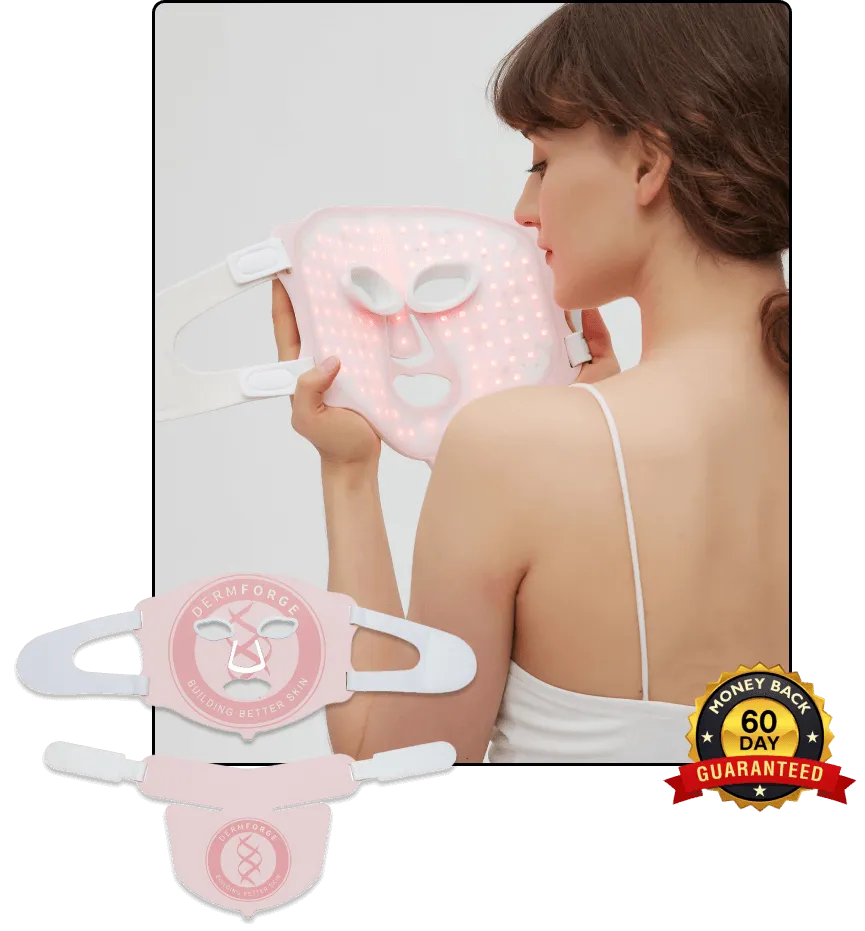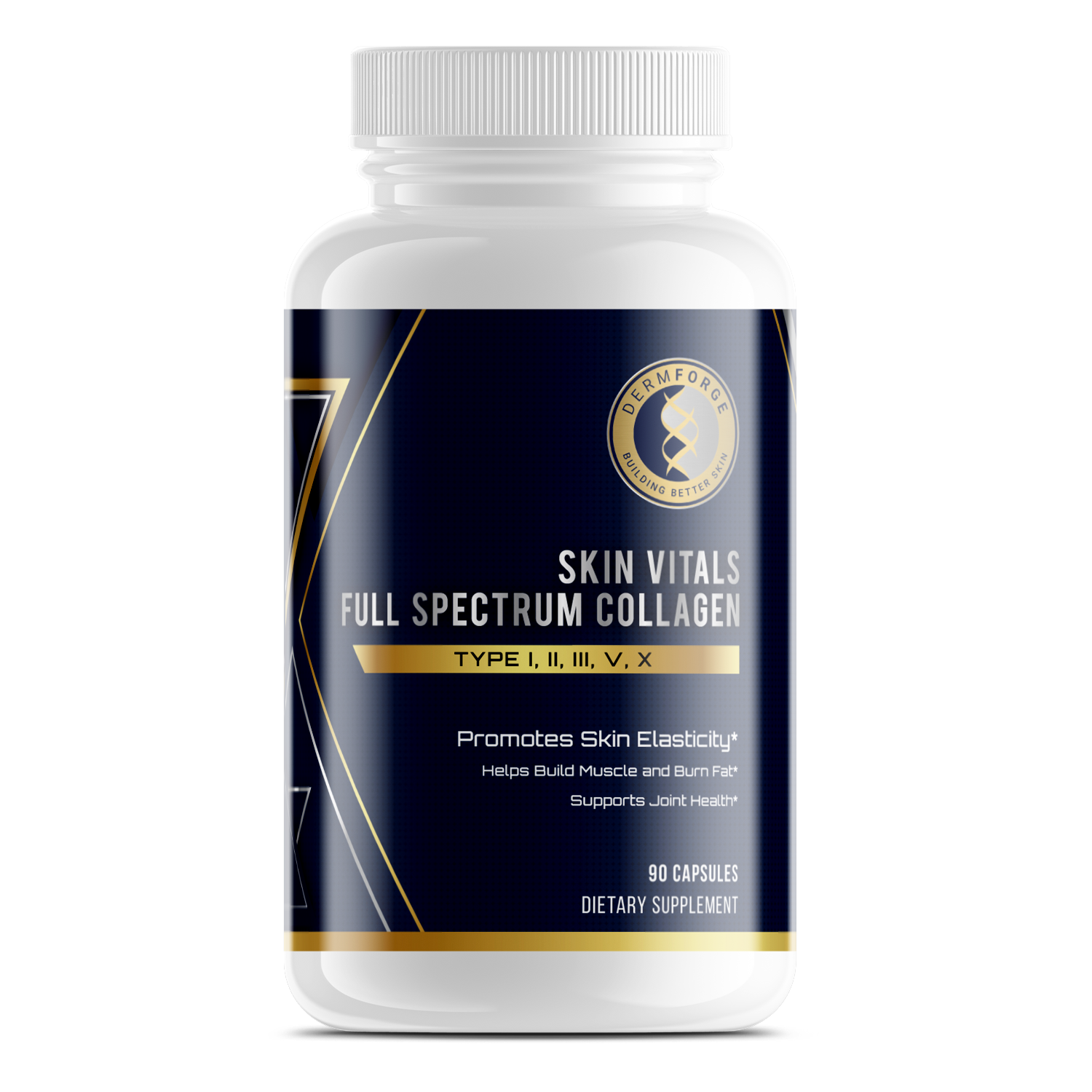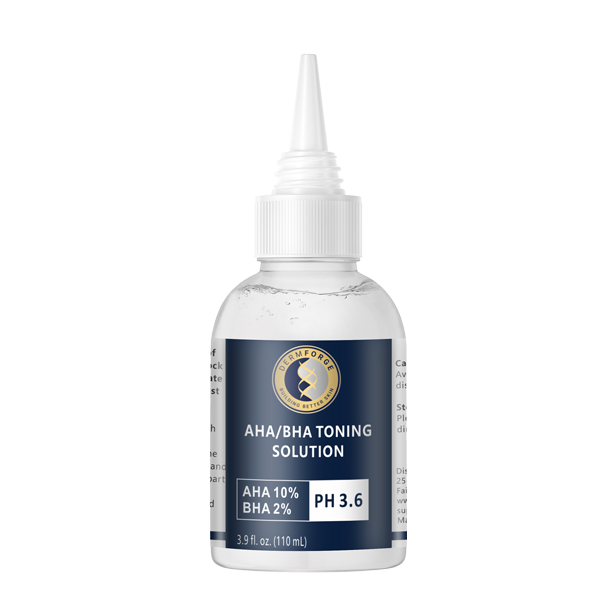Collagen supports many systems in your body, including skin, joints, and connective tissues. Different collagen types help with specific functions. That’s why many people look for products that match their personal health or beauty goals. You may already use collagen, or you might be comparing options for the first time.
Additionally, interest in collagen supplements continues to grow. Many consumers now want clearer labeling, clean ingredients, and evidence of effectiveness. Therefore, brands have started focusing more on transparency and results. You’ll see a wide range of formulas that highlight their source and benefits.
However, not all collagen products work the same way. Factors like absorption, delivery method, and dosage affect how well your body uses the supplement. Therefore, knowing what to look for can help you avoid wasting time or money. That includes learning which format fits your daily habits.
You also want to think about where the collagen comes from. Some products use bovine or marine sources, while others use plant-based ingredients. Additionally, each option appeals to different diets, budgets, and values. Understanding those preferences can help you narrow your search.
The way collagen is packaged and marketed continues to evolve. Many products now target specific results like firmer skin or stronger joints. Some focus on women’s health, athletic recovery, or even sleep support. Therefore, your product choice should reflect both your needs and expectations.
With so many choices available, it helps to focus on what matters most. When you understand your goals and the ingredients that support them, you’ll make better decisions. That clarity can lead to better outcomes for your skin, joints, or overall wellness.
What Is Collagen and Why It Matters
Collagen is a structural protein your body naturally produces. It provides strength and support to your skin, bones, muscles, and connective tissues. You’ll find it throughout the body, especially in areas that need flexibility and firmness. Your body uses collagen to keep skin smooth, joints flexible, and bones strong.
Over time, your body makes less collagen. As this happens, your skin may lose firmness, and your joints may become less comfortable. That’s why collagen has become a focus in health, wellness, and cosmetic products. Many people now look for ways to support their body’s collagen levels.
Additionally, collagen plays a role in how your skin looks and feels. Therefore, skincare brands include it in anti-aging products. Supplement companies also offer powders and capsules to support collagen levels internally. These products often include different collagen types, each with specific benefits.
There are multiple forms of collagen, and each type works differently. Some types support skin and hair, while others focus on joints or tendons. As interest grows, companies have started developing targeted products based on specific collagen types. This helps match the right collagen to your personal goals.
Because collagen affects both appearance and comfort, it fits naturally into many wellness routines. You can support your body with collagen supplements, skincare products, or nutrition. Additionally, collagen works well with other ingredients like hyaluronic acid or vitamin C. These combinations aim to help you see faster results.
You don’t need a complex routine to support collagen levels. Simple steps can support your body’s natural repair systems over time. With regular use, collagen-focused products may help maintain smoother skin and more flexible joints. That’s why it remains a consistent trend in personal health and beauty.
The Four Main Types of Collagen (Types I, II, III, and IV)
Your body produces several collagen types, but four stand out for their specific roles. These include Type I, II, III, and IV. Each one supports different tissues and performs distinct functions. Understanding how they work can help you choose products that fit your goals.
Type I is the most common and abundant form in your body. It supports your skin, bones, tendons, and ligaments. Because of this, it’s often used in beauty products and supplements. Many people take Type I to help maintain smooth skin and strong bones.
Type II focuses more on cartilage and joint health. Therefore, you’ll find it in supplements aimed at mobility and comfort. This type supports the smooth tissue between your joints and can be useful if you experience stiffness or soreness. Additionally, some use it to support recovery from regular wear and tear.
Type III often works alongside Type I in your skin, muscles, and blood vessels. While it plays a slightly different role, it still helps support structure and elasticity. Some supplements include both Type I and III to support skin firmness and muscle tone. Therefore, combining them can target multiple areas at once.
Type IV plays a smaller but specific role. It supports the layers of your skin that act as a barrier. These thin layers sit beneath the surface and help filter materials in and out of tissues. Additionally, Type IV helps support internal organs and basement membranes.
All four collagen types serve a purpose in your health routine. Each one affects different tissues and functions. When you understand how they work, you can better match the right type to your body’s needs. That way, your collagen support becomes more focused and effective.
Collagen Sources: Animal-Based vs. Marine vs. Vegan Alternatives
Collagen products come from different sources, and each one brings specific benefits. Most common are animal-based, marine, and vegan-friendly options. Each source affects how your body may absorb and use the collagen.
Animal-based collagen usually comes from cows or pigs. This type includes collagen types I and III, which support skin, bones, and tendons. Because it's widely available, it tends to cost less and appears in many supplements. However, some people avoid it for dietary or ethical reasons.
Marine collagen is made from fish skin and scales. Therefore, it appeals to those avoiding land animal products. Additionally, marine collagen often absorbs faster than other types. It mainly supports skin and hair health because it contains a high amount of Type I. Some consumers choose it for its smaller peptide size and easy digestion.
Vegan collagen is different. It doesn’t contain real collagen but instead uses plant-based ingredients to support your body’s own production. You may see ingredients like silica, vitamin C, or amino acids that encourage collagen synthesis. Although it lacks animal-derived collagen, some prefer it for lifestyle or allergy reasons.
Each source has a loyal group of users. Some choose animal-based for full-body support. Others want marine collagen for skin or personal beliefs. Still, many look for vegan options to fit their diet. Additionally, companies now formulate products to meet these preferences while staying effective.
As interest in collagen grows, so do the options. You have choices based on price, function, and values. When comparing collagen types, consider your health goals and lifestyle. That helps you find a product that works for your needs and fits your daily routine.
How to Choose the Right Collagen Supplement for Your Needs
Finding the right collagen supplement depends on your health goals, lifestyle, and preferred product format. Not every option works the same. Therefore, taking time to compare labels can help you make a better choice.
You should start by knowing what you want to improve. If you care about skin firmness, Type I may be the best option. Additionally, look for formulas that include vitamin C to support absorption. If joint comfort is your goal, you may want Type II instead.
Some products include multiple collagen types in one formula. These blends can work well if you have more than one goal. However, you still want to check the ingredient list and dosage amounts. That helps you avoid buying a product that won’t meet your needs.
The format also matters. Powders allow flexible dosing and usually contain more collagen per serving. Capsules are easier for travel or busy mornings. Additionally, flavored drinks and gummies offer alternatives for people who dislike pills or mixing powders.
You may also want to think about the source. Some collagen comes from cows, pigs, or fish. Others use plant-based ingredients to support your body’s collagen production. Therefore, consider your dietary preferences before making a purchase.
Price is another factor, but more expensive doesn’t always mean better. Look for clear labeling and straightforward claims. When you understand the differences between collagen types and how products are made, it’s easier to find the right fit.
Formulation and Bioavailability: How Collagen Is Delivered
How collagen is delivered makes a difference in how well your body can use it. The format affects both convenience and absorption. That’s why understanding bioavailability helps you choose the best product for your needs.
Hydrolyzed collagen and collagen peptides are nearly the same. Both go through a process that breaks them into smaller pieces. These smaller pieces absorb more easily in your digestive system. Therefore, they tend to work faster and reach your tissues more effectively. Additionally, they mix well in liquids, making them popular in powders and drinks.
Powders are the most flexible option. You can add them to water, smoothies, or coffee. They often contain hydrolyzed forms and dissolve quickly. Because of this, they appeal to people who already have a daily routine and want easy ways to supplement.
Capsules are more convenient for travel or busy mornings. However, they may contain lower doses per serving than powders. That means you may need more capsules to match the same amount. Additionally, some users prefer them to avoid taste or mixing.
Bioavailability refers to how much of a substance your body can actually absorb and use. Therefore, the format you choose matters. Products with higher bioavailability may show results faster and more consistently. This applies across different collagen types and delivery systems.
Each form has its trade-offs. Powders offer flexibility, while capsules offer simplicity. Peptides and hydrolyzed forms absorb better than whole collagen. When choosing your product, consider your daily routine and health goals. That way, your supplement supports you without becoming a hassle.
Collagen Supplements and Skincare
Collagen supplements and skincare products continue to grow in popularity. Many people now include both in their daily routines. These products support common goals like firmer skin, fewer fine lines, and better hydration. Therefore, they appeal to a wide range of consumers.
You’ll find different delivery methods, including powders, capsules, and creams. Each one claims to target collagen loss from a different angle. However, product performance depends on the type of collagen and the way your body absorbs it. That’s why choosing the right format matters.
Additionally, skincare products often include ingredients that work with collagen, such as peptides or hyaluronic acid. These combinations aim to support the skin’s barrier and texture. Some users prefer a topical approach, while others rely on internal supplements. Both methods can support long-term results.
More brands now tailor their products to specific needs. Some target fine lines, while others focus on elasticity or skin tone. Therefore, clear labeling and targeted messaging are more important than ever. These features help consumers match products to personal goals.
Collagen types also influence product selection. Type I supports skin strength and is common in both supplements and topical formulas. Additionally, products often highlight source material like marine or bovine collagen. That helps you find something that fits your values and comfort level.
When skincare and supplements work together, the effects may be more noticeable. A consistent approach usually works better than short-term use. Therefore, your results depend on how well the product fits your needs and how often you use it.
Conclusion
Collagen supplements continue to gain interest across health and beauty markets. Each product brings its own strengths depending on the formula. Therefore, understanding how collagen works helps you make better product choices for yourself or your customers.
You now have access to a wide range of formats and sourcing options. Additionally, collagen types support different areas of the body, including skin, joints, and gut health. That variety gives you flexibility to focus on your specific goals. Whether you prefer powders, capsules, or topical solutions, there’s a format that fits your routine.
Product quality and formulation both affect results. Hydrolyzed collagen and peptide forms tend to absorb better than less-processed options. Therefore, knowing what to look for can help you choose a supplement that performs well. Additionally, some products combine collagen with supporting nutrients for a more complete approach.
Consumer preferences continue to influence the direction of the collagen market. Many people now look for clean ingredients, sustainable sources, and transparent labeling. Therefore, brands that meet these expectations often gain stronger trust and loyalty.
You don’t need complicated steps to support your collagen levels. A consistent, well-formulated product can provide steady support over time. Additionally, tracking your results may help you find what works best.
Whether you're managing your own health or building a collagen-focused product line, clarity matters. When you understand collagen types, you can better connect each product with its intended benefit. That helps build confidence, loyalty, and long-term results for you and your customers.








